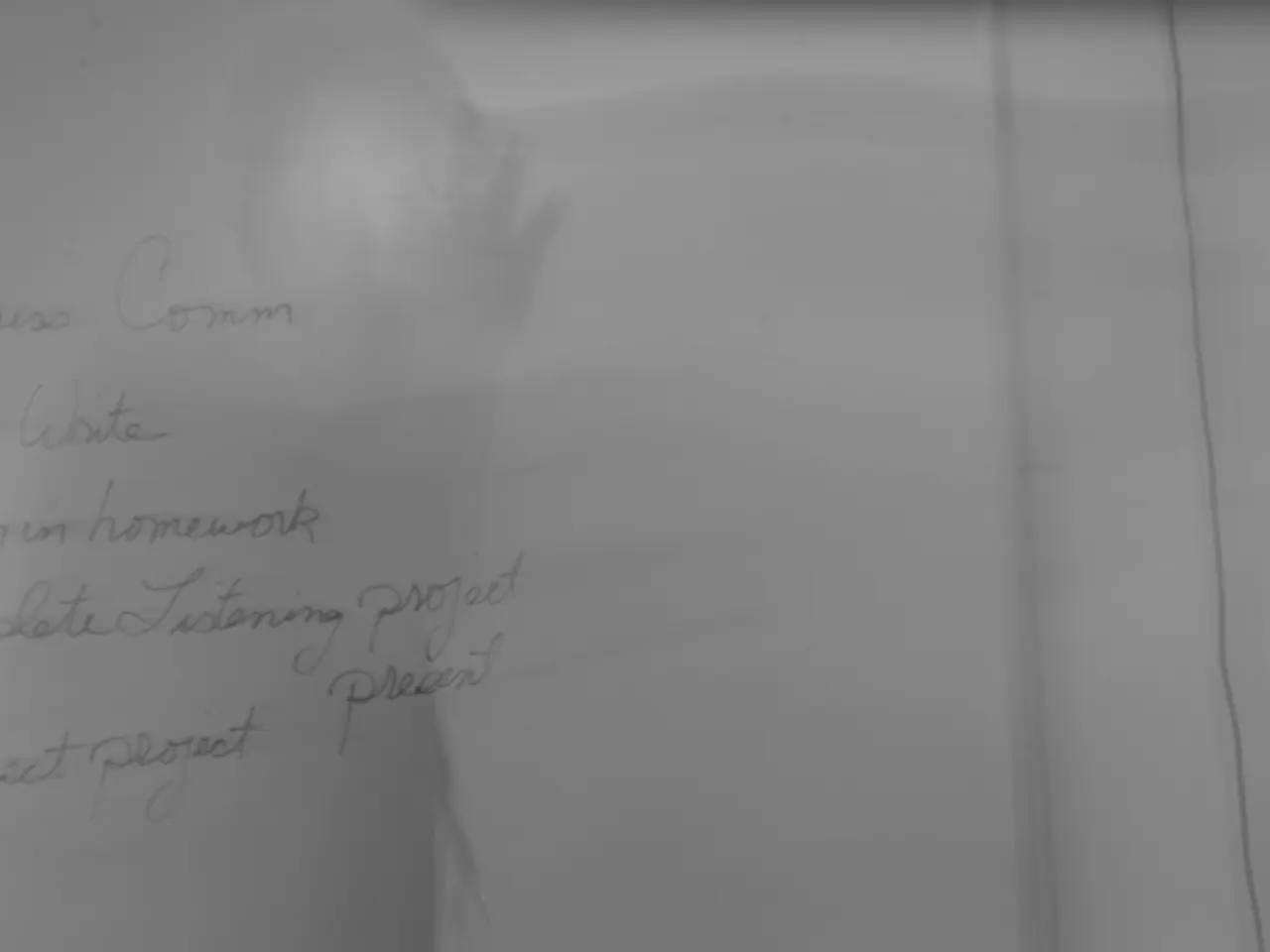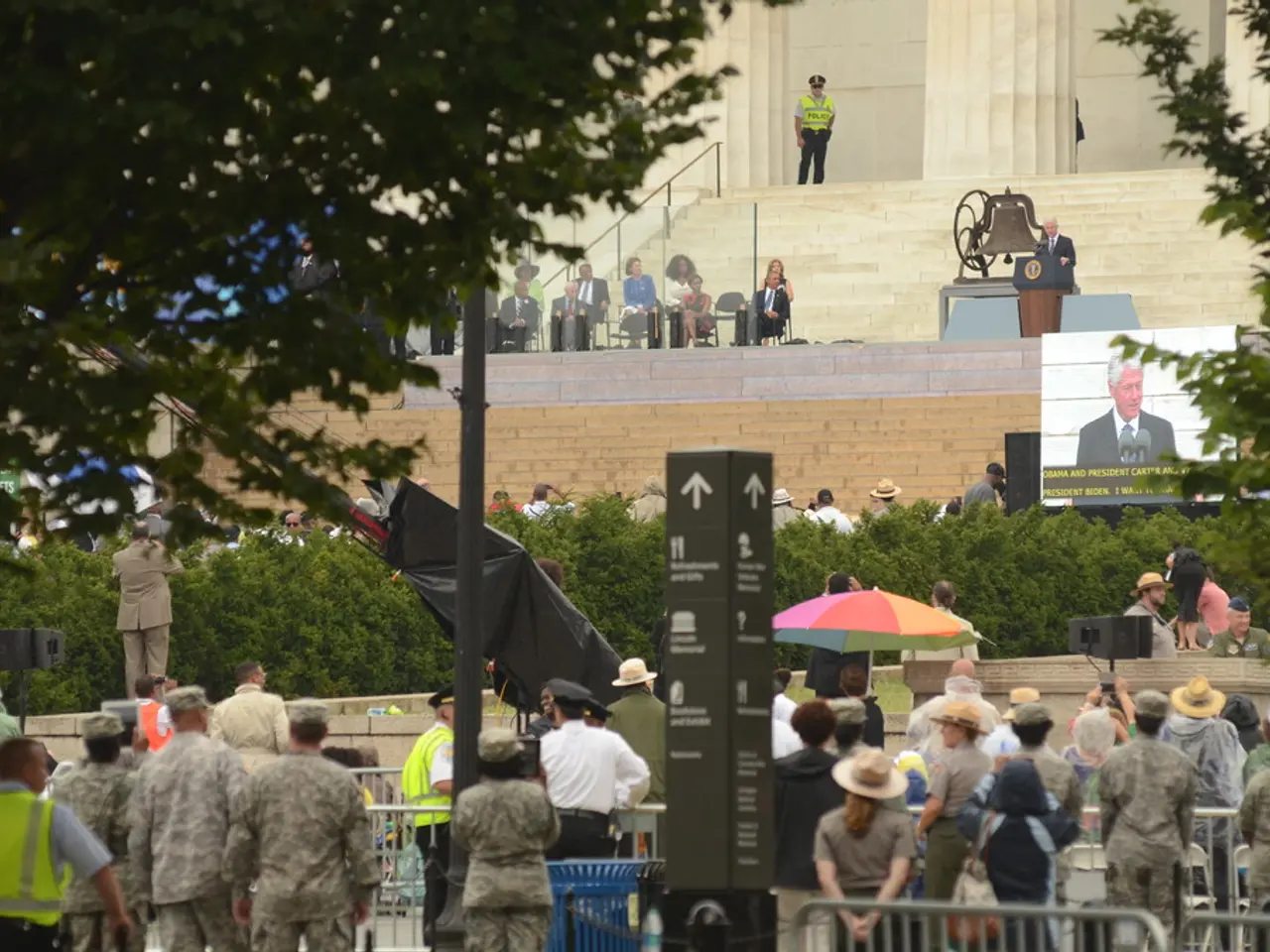Texas Legislature Approves Bill Making it Illegal to Use Doctored Images in Political Campaign Ads Without Proper Notification
Texas House Bill 366: A New Era of Political Ad Transparency
Texas House Bill 366, introduced by former House Speaker Dade Phelan (R), aims to address the increasing use of AI technology in political advertising by criminalizing the use of altered media in political ads without proper disclosure [1][2].
The potential implications of HB 366 include increased transparency in political advertising, legal consequences for violators, and challenges for enforcement and interpretation.
Increased transparency in political advertising is achieved by mandating disclosures when media is digitally altered. This helps voters better evaluate the authenticity and intent of political messages [1][2].
Legal consequences for violators could discourage the spread of manipulated political content designed to mislead voters. However, defining what qualifies as "altered media" and determining intent could be complex, potentially leading to disputes over compliance and free speech issues [1][2].
Controversies surrounding HB 366 might involve concerns about free speech and political expression, technical and practical difficulties in identifying and proving media alteration, political partisan debates, and the potential for the law to be used selectively or weaponized in political disputes.
Critics argue the bill could infringe on First Amendment rights by regulating political speech and creative expression in ads. Technical and practical difficulties in identifying and proving media alteration and whether disclosures were adequately made also pose challenges [1].
Political partisan debates are evident in voting records, where the bill passed with some opposition (102 yea vs. 40 nay in House) [1]. The potential for the law to be used selectively or weaponized in political disputes is another concern.
The Foundation for Individual Rights and Expression tweeted a statement expressing concerns about the bill's language of media that "did not occur in reality." They also raised concerns about the $100 minimum, which could easily sweep up regular people who simply do something like pay to boost content on social media [1].
Researchers have shown that scammers are successfully using AI images on Facebook for audience growth, and Facebook users often do not recognize AI-generated images as fake [3]. This raises concerns about the potential for HB 366 to address this issue effectively.
The Texas House currently has a law that prohibits using AI pictures within 30 days of an election [2]. HB 366 extends this prohibition to all political advertising and requires disclosure when media is altered.
Nate Schatzline (R) condemned the bill as "anti-American," saying that throwing someone in jail for expressing political speech is a form of silencing. Representative Steve Toth (R) stated that the Texas Ethics Commission should not be an arbiter of truth in language [1].
Sam Hooper, counsel for the Institute of Justice, stated that HB 366 is a serious bill with First Amendment concerns. He argued that political satire, parody, memes, and other forms of speech should not require a disclaimer [1].
Phelan stated that the bill marks the beginning of a new era in ethics where voters need to know what is real and what is not [2].
It is not clear if the bill will pass in the Senate.
References: [1] The Texas Tribune. (2023, February 28). Texas House passes bill criminalizing use of altered media in political ads. Retrieved April 10, 2023, from https://www.texastribune.org/2023/02/28/texas-house-passes-bill-criminalizing-use-altered-media-political-ads/ [2] Houston Chronicle. (2023, February 28). Texas House passes bill to criminalize use of altered media in political ads. Retrieved April 10, 2023, from https://www.houstonchronicle.com/politics/texas/texas-legislature/article/Texas-House-passes-bill-to-criminalize-use-of-17668465.php [3] The Verge. (2022, October 18). Deepfakes are now being used to scam people on Facebook. Retrieved April 10, 2023, from https://www.theverge.com/2022/10/18/23410098/deepfakes-scams-facebook-ai-images-audience-growth
- The proposed Texas House Bill 366, which targets the use of AI technology in political advertising, may encounter challenges in politics and policy-and-legislation, particularly regarding free speech and political expression, as critics argue it could infringe on First Amendment rights.
- In the realm of tech and technology, researchers have expressed concerns about the effectiveness of HB 366 in addressing the issue of scammers using AI images on platforms like Facebook, as users often fail to recognize such images as fake.
- As the future unfolds, the implications of HB 366 on general news are significant, with potential controversies involving political partisan debates, selective or weaponized use, and the interpretation and enforcement of altered media in political ads.





